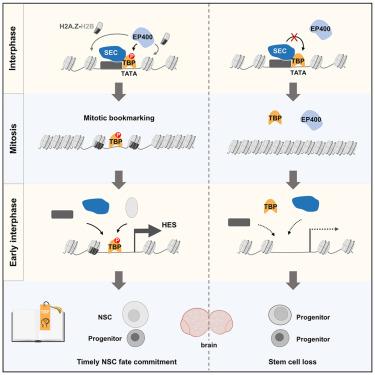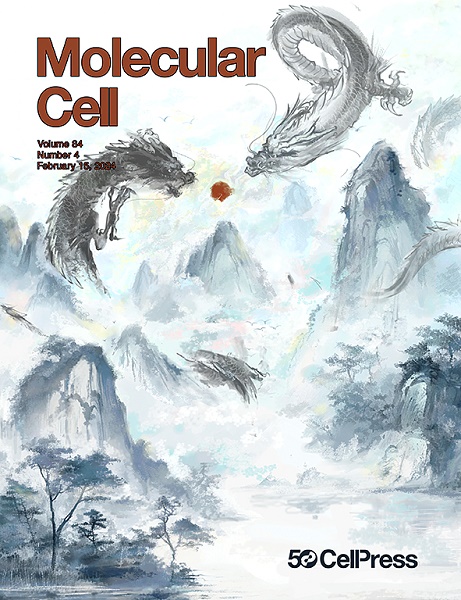TBP bookmarks and preserves neural stem cell fate memory by orchestrating local chromatin architecture
IF 14.5
1区 生物学
Q1 BIOCHEMISTRY & MOLECULAR BIOLOGY
引用次数: 0
Abstract
Mitotic bookmarking has been posited as an important strategy for cells to faithfully propagate their fate memory through cell generations. However, the physiological significance and regulatory mechanisms of mitotic bookmarking in neural development remain unexplored. Here, we identified TATA-binding protein (TBP) as a crucial mitotic bookmarker for preserving the fate memory of Drosophila neural stem cells (NSCs). Phosphorylation by the super elongation complex (SEC) is important for TBP to retain as discrete foci at mitotic chromosomes of NSCs to effectively transmit their fate memory. TBP depletion leads to drastic NSC loss, whereas TBP overexpression enhances the ability of SEC to induce neural progenitor dedifferentiation and tumorigenesis. Importantly, TBP achieves its mitotic retention through recruiting the chromatin remodeler EP400, which in turn increases local chromatin accessibility via depositing H2A.Z. Thus, local chromatin remodeling ensures mitotic bookmarking, which may represent a general principle underlying the preservation of cell fate memory.

TBP通过协调局部染色质结构书签和保存神经干细胞命运记忆
本文章由计算机程序翻译,如有差异,请以英文原文为准。
求助全文
约1分钟内获得全文
求助全文
来源期刊

Molecular Cell
生物-生化与分子生物学
CiteScore
26.00
自引率
3.80%
发文量
389
审稿时长
1 months
期刊介绍:
Molecular Cell is a companion to Cell, the leading journal of biology and the highest-impact journal in the world. Launched in December 1997 and published monthly. Molecular Cell is dedicated to publishing cutting-edge research in molecular biology, focusing on fundamental cellular processes. The journal encompasses a wide range of topics, including DNA replication, recombination, and repair; Chromatin biology and genome organization; Transcription; RNA processing and decay; Non-coding RNA function; Translation; Protein folding, modification, and quality control; Signal transduction pathways; Cell cycle and checkpoints; Cell death; Autophagy; Metabolism.
 求助内容:
求助内容: 应助结果提醒方式:
应助结果提醒方式:


